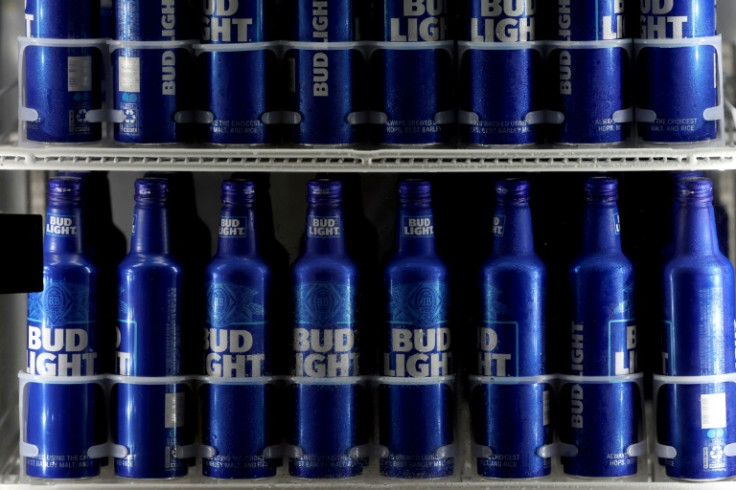Despite $1 Billion Sales Hit, Bud Light Reports Profit Surge
Anheuser-Busch InBev (BUD), the world's largest brewer, has encountered a significant sales setback, potentially losing up to $1.4 billion in revenue due to a social media-driven boycott in the middle of last year.

Despite reporting record revenues for 2023, Anheuser-Busch InBev affirmed that its growth potential was hindered by its U.S. business, where sales were adversely affected by a boycott of Bud Light following a sponsored Instagram post with Dylan Mulvaney, a transgender influencer. The company reported a decline in Bud Light sales in the United States as a primary factor contributing to a staggering $1.4 billion plunge in organic revenue in North America.
"In the US, performance remains very underwhelming with revenue down at double-digit rates as the group lost market share," said Aarin Chiekrie, an equity analyst at online investing platform Hargreaves Lansdown on Thursday.
Consequently, Bud Light, which had held the title of America's top-selling beer for more than two decades, experienced a significant decline in sales, allowing Mexican lager Modelo Especial to claim the top spot in the following month.
The company also faced challenges in its Asia business, Budweiser Brewing Company APAC, with shares closing nearly 7% lower in Hong Kong. Profits attributable to shareholders declined due to a one-off customs charge in South Korea, while overall sales volumes in China also fell in the fourth quarter.
Despite the challenges, Anheuser-Busch InBev managed to prevent a possible strike by reaching a tentative agreement with the Teamsters union in the U.S., during labor stability for approximately 5,000 workers. Additionally, the company showed optimism regarding the outlook for its US business, citing gradual improvement in market share since May.
Anheuser-Busch InBev reported annual revenue of $59.38 billion, a 7.8% increase, falling short of analyst expectations. Volumes sold declined by 1.7%, with beer brands experiencing a 2.3% decline. Core profit (EBITDA) rose by 7% annually to nearly $20 billion, slightly below forecast.
AB InBev CEO Michel Doukeris said that the results were a "testament to the strength of the beer category, resilience of our business and people, consistent execution of our replicable growth drivers and our unwavering commitment to invest for long-term growth and value creation."
Analysts at Bernstein also emphasized the company's solid performance in 2023, citing price increases offsetting declining sales. However, they warned against tough pricing dynamics in the US market and highlighted weaker-than-expected sales trends in the final quarter, primarily driven by Bud Light's ongoing struggles.
While challenges persist, China emerged as a bright spot for Anheuser-Busch InBev, with profits up 32% due to the success of premium products. The company also confirmed a full-year dividend increase to 0.82 euros ($0.89) and emphasized its commitment to long-term growth and value creation.
© Copyright IBTimes 2025. All rights reserved.






















